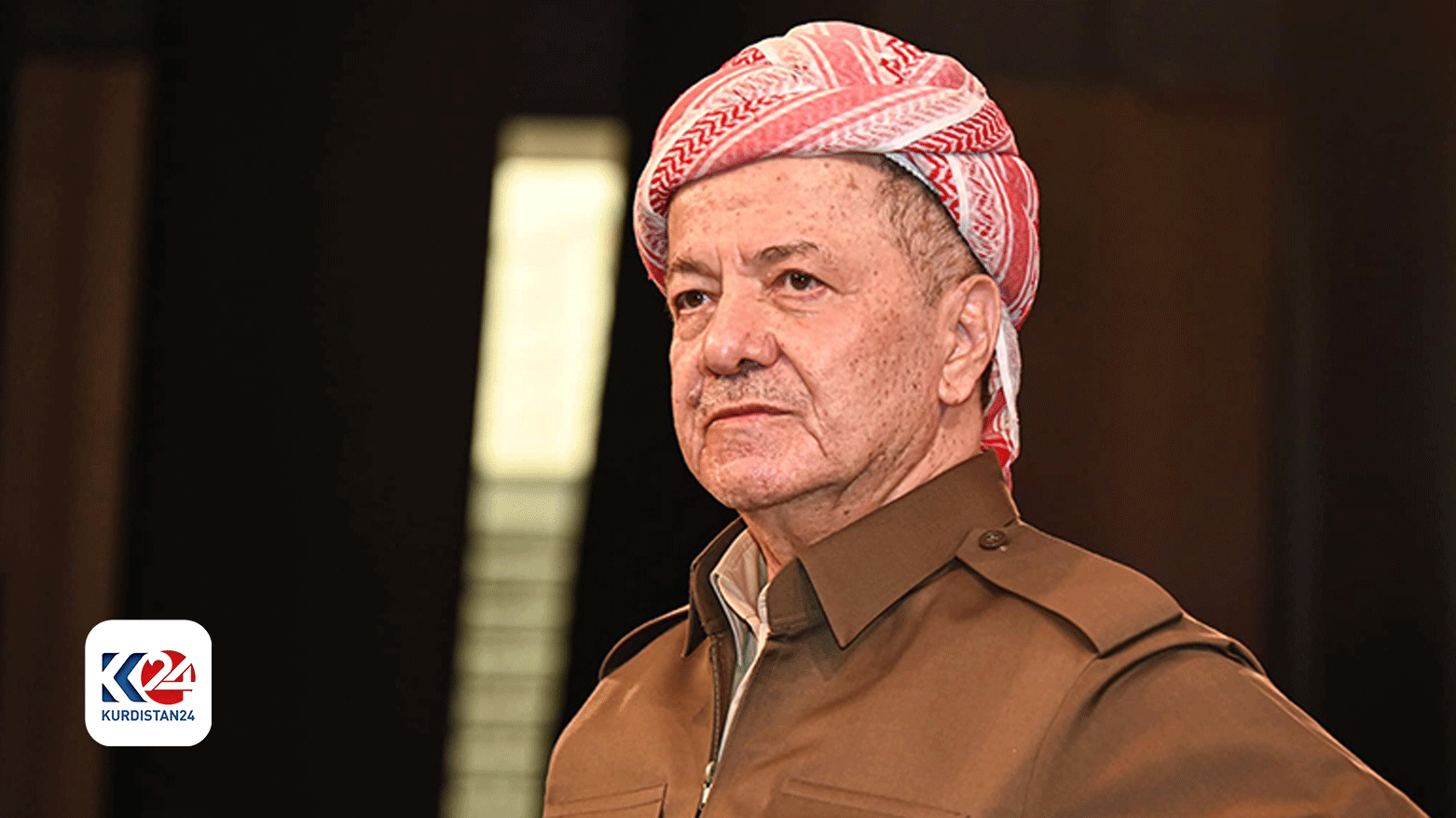KDP President urges recognition of Anfal legacy amid persistent chauvinism in Iraq
KDP President Barzani highlighted the persistence of chauvinistic sentiments within the Iraqi state, emphasizing the obligation of Iraqi institutions to address the historical injustices and safeguard the rights of the Kurdish nation.

ERBIL (Kurdistan 24) – KDP President Masoud Barzani issued a poignant message on the 36th anniversary of the Anfal genocide, highlighting the enduring scars of the atrocities committed against the Kurdish nation.
In his message, President Barzani underscored the responsibility of Iraqi institutions to address the legacy of Anfal and prevent further injustices against the Kurdish nation.
Read More: 36th anniversary of Anfal genocide to be commemorated across Kurdistan Region
"The Anfal campaign stands as one of the most heinous crimes perpetrated by the former Iraqi regime, with the explicit intent of eradicating and exterminating the Kurdish nation," stated President Barzani. "The massacres and genocide inflicted immense suffering, claiming the lives of 180,000 innocent Kurdish civilians, while the use of chemical weapons, destruction of villages, forced displacement, and attempts at demographic engineering further compounded the atrocities committed against our nation."
Read More: Anfal remains a deep wound in Kurdish history: KRG Prime Minister
President Barzani acknowledged that while the perpetrators of Anfal and similar crimes have been consigned to history, the wounds inflicted upon the Kurdish nation continue to resonate. He highlighted the persistence of chauvinistic sentiments within the Iraqi state, emphasizing the obligation of Iraqi institutions to address the historical injustices and safeguard the rights of the Kurdish nation.
Read More: Kurdistan Region aims to 'internationalize' perception of Anfal
"On this solemn occasion, we pay tribute to the resilience and sacrifice of the families of Anfal victims and martyrs, honoring the memory of all those who fell victim to the brutal repression of the Kurdistan freedom movement," President Barzani affirmed.
The message serves as a poignant reminder of the enduring legacy of Anfal and the ongoing struggle for justice and recognition faced by the Kurdish nation.
The Anfal campaign, commonly referred to as the Kurdish genocide, was a systematic genocide perpetrated against Kurds in southern Kurdistan by the Ba'ath regime under the leadership of Saddam Hussein, during the Iran-Iraq war. The operation involved approximately 200,000 Iraqi troops and resulted in the disappearance of 182,000 civilians and the destruction of over 4,500 villages.
Read More: Mass grave in southern Iraq believed to contain remains of Kurdish Anfal victims
The Anfal campaign unfolded in multiple stages:
1. The first phase (February 9 to February 23, 1988) targeted the Sargallu and Bargallu areas of the Soordash Township in the Dukan district of Sulaimani province.
2. The second phase (February 22 to April 1, 1988) extended to the Qara Dagh region.
3. The third phase (April 7 to April 20, 1988) encompassed the Garmian areas in Kirkuk province and cities such as Khurmatu, Kalar, Kufri, Darbandikhan, Chamchamal, and others.
4. The fourth phase (May 3 to May 8, 1988) covered the length of the small river, including Agh’jalar, Goptapa, Askar, Sheikh Bzeni, Koya, Khalkan, and Dukan.
5. Phases 5, 6, and 7 (May 15 to August 26, 1988) extended to various regions including Balisan, Shaqlawa, Hiran, Nazanin, Smaquli, Alana Valley, Rawanduz, Choman, Kandil Mountain Range, Ranya, Chwarqurna, Hizop, Bawaji Mountain, some villages of Koya, Dibaga, and Perde.
6. The eighth and final phase (August 25 to September 6, 1988) targeted the Badinan region of Amedi, Duhok, Zakho, Sheikhan, Akre, and Barzan.
Since 2007, the Kurdistan Regional Government (KRG) has designated April 14 as a day of remembrance to honor the victims of the Anfal genocide.